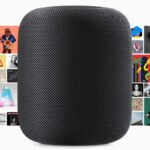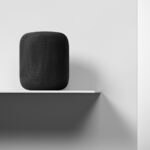Apple joins the battle for the smart speaker market
Smart speakers are the vanguard of the so-called environmental technology, which transcends the limitations of screens. For the moment, Amazon reigns supreme over a market in which Apple is about to disembark.

They can be used to listen to music, order a pizza, book a taxi or even turn off the light in the bedroom. Smart speakers keep acquiring more and more capabilities; some experts even predict that they will become the key domestic device, with an impact similar to that of smartphones outside the home. At the moment, smart speakers are considered the vanguard of so-called environmental technology, which transcends the limitations of screens and allows people to interact with artificial intelligence in a natural way.
The business, both on the hardware and software side, promises to be very lucrative. That´s why analysts and enthusiastic gadget consumers will be paying close attention on February 9, when Apple is scheduled to launch HomePod, the company´s bet on the booming smart speakers market.

Apple announced that HomePod will be available in stores beginning February 9 in the US, UK and Australia. - Apple
While the launch of HomePod - in the United States, the United Kingdom and Australia - is likely to live up to the high expectations that Apple's products always generate, many believe it comes late to the challenge. The smart speaker market today is clearly dominated by Amazon, with Google a far second.
According to estimates from the British consultancy Strategy Analytics, in the fourth quarter of 2017 Amazon enjoyed a global market share in smart speakers of 68% (including third-party products with Alexa, Amazon's virtual assistant), compared to Google Home´s 24%. The remaining eight percentage points are divided among the rest of the competitors, among them Microsoft (with Cortana, its virtual assistant) and the Chinese giant Alibaba.
Price drop
Amazon is reaping the benefits of its early commitment to this market. The online sales giant launched its smart speaker, Echo, in November 2014. The debut didn’t make the headlines, but the device began to gain popularity around 2016, when its range was expanded its and its features improved.
The smart speaker concept is picking up momentum, as sales finally took off during the last quarter of 2017. According to the Canalys consultancy, 33.2 million smart speakers were sold worldwide last year, with 48.4% of those purchases taking place in the last quarter. Throughout 2016, the sales figure was much more modest, approximately six million units. A significant fact: Amazon Echo was the item most sold by Amazon worldwide during the last Christmas season.
Speaking to the British newspaper 'The Guardian', Ben Stanton, one of Canalys analysts, explained the reasons behind the swelling sales: “The last 12 months have been explosive for smart speakers, which have surged into the mass market for two reasons. Firstly, smart speakers have become the central control hubs of the smart home ecosystem. Secondly, and most importantly, the price of smart speakers has fallen drastically.”
The wide range of models (and therefore prices) of Amazon Echo is one of its strengths. The low-cost option sells for around $50 and the most sophisticated, which includes a screen, for $230. The standard version of Google Home is priced at $130. However, Apple’s HomePod will go on sale in the United States for $ 350, presenting another obstacle to gaining market share.